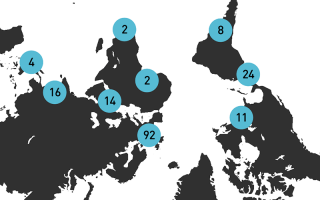2021/22 graduate Claudia Wong Palacios discusses what it's like to study MSc Development Administration and Planning at UCL.
1. What initially sparked your interest in the DAP programme? What was your prior experience with development, if any, and what did you hope to achieve by participating in the course?
A: Before commencing the DAP program, I had worked on territorial and economic development issues in the government for approximately four years. I had a strong desire to deepen my knowledge in these areas, particularly in rural development. The DAP program stood out as the only development program I found that included courses focused on rural and agricultural aspects. Moreover, it provided a robust theoretical foundation combined with a practical, grassroots perspective.
2. How or where did you first hear about the DAP programme?
I discovered the program through the DAP website and obtained additional information by speaking with DPU and DAP alumni.
3. What were your expectations? (Were these expectations adjusted once here?)
I was anticipating being stimulated by diverse and multidisciplinary knowledge concerning development theories and debates, with the aim of broadening my perspective on rural development and gender. I'm pleased to say that the courses, professors, and the academic environment were invigorating and fully met my expectations. Additionally, I had hoped for a more diverse, multicultural, and multidisciplinary approach to development, which is precisely what I ultimately gained from this programme.
4. What was your favorite aspect or feature of the DAP course? What was your favourite module or subject?
I truly appreciated how the academic environment promoted critical thinking through small, dynamic classes, conferences, and the various resources that the program offered. Moreover, professors were consistently available to engage in more in-depth discussions on issues we wanted to explore or to address concerns about our lives after completing the program. My favorite module was 'Critical Ideas of Development' because it encouraged critical engagement with ideas and theories that underlie development actions and explored the relationship between theory and reality. A very close second favorite was 'Land and Agriculture,' which featured engaging discussions on rural development.
5. How has your career developed since completing the course? Where have you been working since graduation, and how did you get into that role? How has the course prepared you for your current career?
UCL and DAP provided us with resources to design our career path after the Master's program. Within the first six months following the program, I became a consultant in rural development for the International Fund for Agricultural Development (IFAD) and worked on climate issues for a DAI-USAID project. Subsequently, I was hired as a Programme Officer (PO) at IFAD to oversee projects related to rural development and agriculture in Colombia and Paraguay. In my role as a Programme Officer, I am responsible for designing, monitoring, and evaluating ongoing projects implemented by national public agencies. Thanks to the DAP program, I have acquired the tools to more effectively approach these tasks both programmatically and theoretically.
6. Do you have any words of advice for current or prospective students?
I would advise choosing elective modules carefully because they can be highly significant in your post-program life. Additionally, it is crucial to make the most of the resources that The Bartlett, DPU, and DAP have to offer, such as conferences, interest groups, debates, dialogues, and the Central House Library, to name a few. Engaging with the diverse student body can also provide you with opportunities to participate in stimulating debates.
 Close
Close


